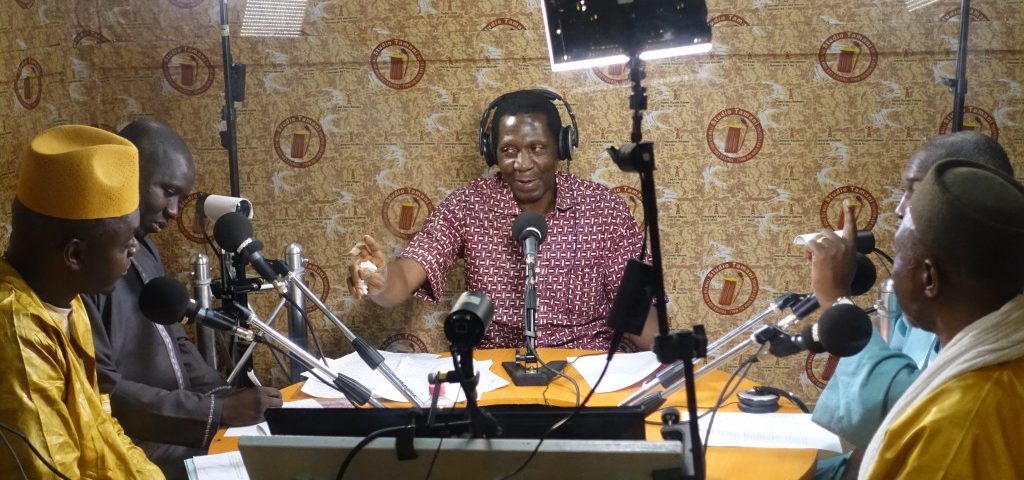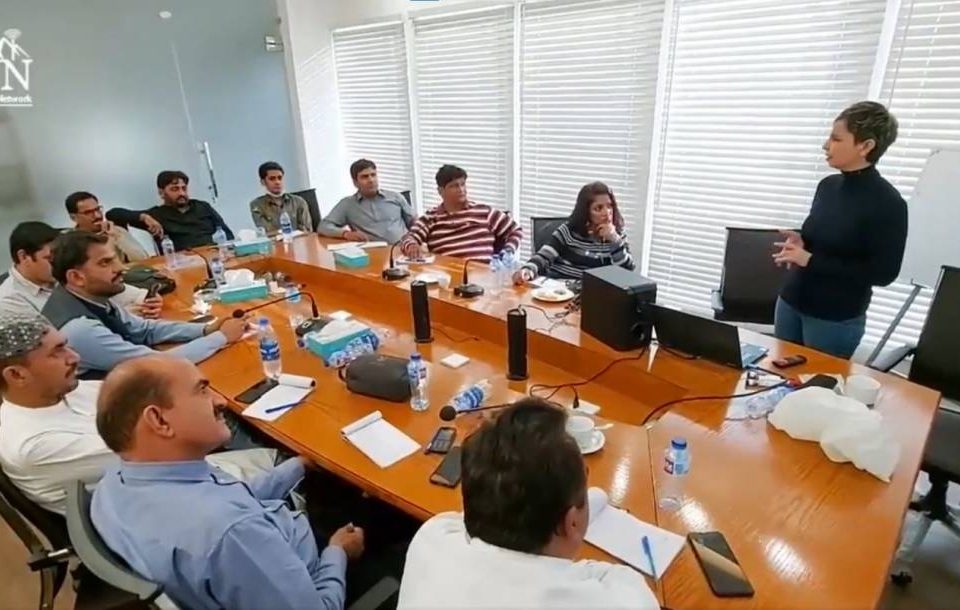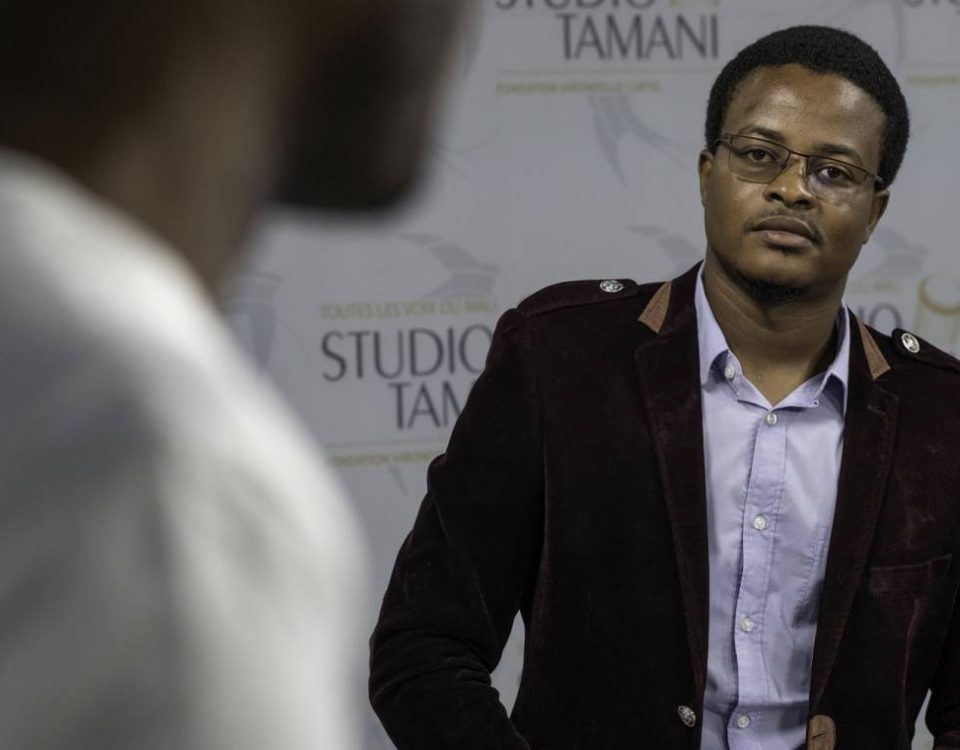Studio Tamani is a radio production studio created in 2013 by Fondation Hirondelle. It broadcasts three hours of news and programs each day, produced in Mali. We talked with Studio Tamani’s Head of Media Bernard Conchon about how the station covers Jihadist violence on a daily basis.
How does Studio Tamani report on Jihadist violence in Mali?
Bernard Conchon: Studio Tamani reports Jihadist attacks carried out by groups mainly linked to Al Qaeda in the Islamic Maghreb (AQMI), and also reactions within Malian society. Three recent events required particularly extensive coverage. First the November 20, 2015 attack on the Radisson Blu hotel in Bamako. The attackers, two young men of about 20, were both killed when the security forces moved in. Then on February 27 to 29, 2016, there was the conference on fighting religious extremism organized by Sabati 2012, a movement of Malian religious leaders, and in March 2016 some 200 radicalized youth in Mopti agreed to leave the armed groups of the Macina Liberation Front (FLM).
What have your programmes highlighted in regard to Jihadism?
BC: Our programs have revealed that the terrorist attacks in the Sahel, like in France, should make society question how it relates to its young people. Because it is the young, and often very young, who carry out these attacks. In the Mopti region (central Mali), radicalization seems for them to be like some kind of social and emotional compensation for a perceived economic or social wrong they have suffered. Brema Ely Dicko, who heads the social anthropology department at the University of Bamako, estimates that only one to two percent of the young Malians who join Jihadi groups really believe in the ideology that they spread. Last March, civil society, MPs and religious authorities decided to act. They managed to persuade 200 young Jihadists, mainly allied to the FLM, to lay down their arms and begin reintegrating society.
From Studio Tamani programmes, how do you think dialogue on Jihadist violence is evolving in Mali?
BC: A few months ago the focus was on the acts of terrorist groups, their recruitment and the security stakes. Now it is not limited just to these aspects, there are also calls for political debate. “Discussions must be engaged with the Malian Jihadists,” says the Amenokal (chief) of the Touareg Ifogha tribe Mohamed Ag Intalla, who is also an MP for Kidal (northeast Mali) and member of the presidential majority. This position has also been supported in our programs by representatives of the Platform and of the Coordination of Azawad Movements, two structures bring- ing together mainly organizations that opposed each other for a long time in northern Mali.
Photo: Live on Studio Tamani, “Grand Dialogue” on Responses to Islamic Radicalism in Mali, March 1, 2016. Nicolas Boissez | Fondation Hirondelle





